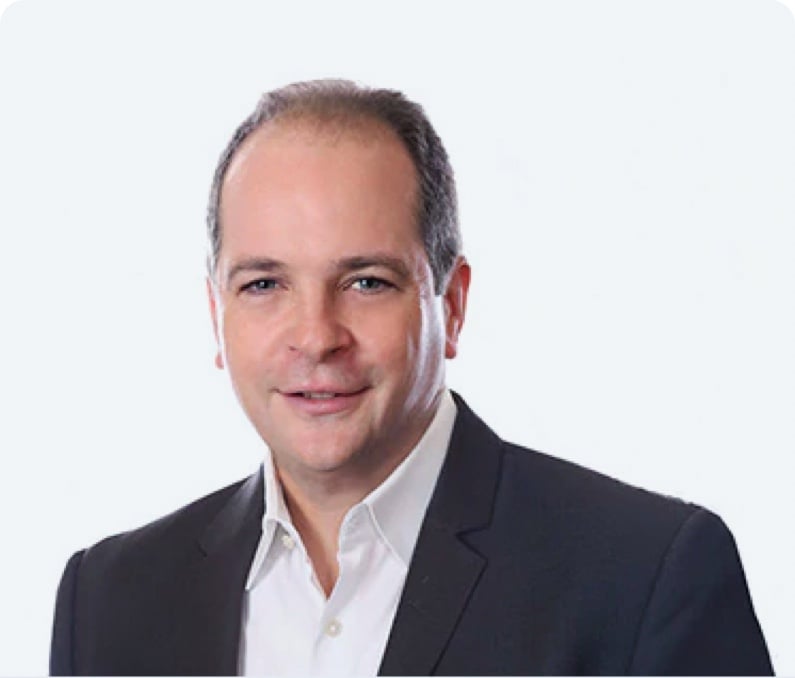Message from our CEO Mick Farrell
As a global leader in respiratory medicine, ResMed stands with the world in the face of the latest coronavirus disease COVID-19 and is ready to help mitigate its effects, helping people breathe while their immune system fights this virus. More than 7,500 ResMedians are working in over 140 countries for this purpose. We are working with governments, health authorities, hospitals, physicians, and patients worldwide to assess their needs, and to deliver the ventilation therapy that is essential to treat the respiratory complications of COVID-19. Our primary focus is to maximize the availability of ResMed ventilators and other respiratory support devices for the patients that need them most.
As global leaders in digital health, we’re proud that many of our ventilators and bilevel respiratory devices are cloud-connected, enabling physicians and respiratory specialists to remotely monitor their patients. There could not be a clearer case for the use of digital health and remote monitoring of patients than this current crisis with a virus that is so contagious stemming from direct human contact.
I’m grateful to our global team for working through today’s challenges to help treat an increasing number of COVID-19 patients. I’d like to call out first-responder ResMedians in China’s Hubei province, the epicenter of the coronavirus outbreak, in particular one ResMed hero who, since early January, has donned a positive pressure hazmat suit, and helped set up thousands of people on ResMed ventilators and ResMed masks. There are also 100-plus ResMedians from Malaysia who in mid-March volunteered to keep working in our Singapore manufacturing plant when Malaysia closed its borders, relocating to live near our plant in Singapore, spending weeks away from their families, so they can continue to produce as many lifesaving ventilators and ventilation masks as possible.
ResMed is taking every measure possible worldwide to maximize the production of ventilators, masks, and other respiratory devices. We are looking to double or triple the output of ventilators, and scale up ventilation mask production more than tenfold. Our team is also taking precautions such as a work-from-home policy for all employees who can do that, social distancing, and ensuring world-class quality, safety, good manufacturing practices, and top-level hygiene procedures at our manufacturing, service, and distribution centers to help ensure quality, safety, and business continuity.
Below you’ll find answers to frequently asked questions about ResMed products and links to leading advice from experts on health and safety. This information is changing rapidly; we encourage you to check back regularly for updates.
I urge all of us to do our part to help reduce the spread of the coronavirus, whether that is self-quarantining, working from home, sheltering in place, or just staying healthy for our families, particularly the elderly and those with compromised immune systems.
Let me close with this: I would like to personally thank the front-line clinical heroes – many thousands of respiratory therapists, respiratory nurses, pulmonary and critical care medicine physicians, as well as hospital and clinical staff who set up our ventilators and masks for patients in need and deliver the lifesaving gift of breath... You are the superheroes of this COVID-19 crisis, and we salute you!
Best,
Mick
Update, February 2021:
I’m proud to report ResMed exceeded its goal of tripling its usual output of ventilators in the first 12 months of the COVID-19 pandemic, providing 150,000+ invasive and non-invasive breathing devices in just the first half of 2020, when demand was highest. That’s 3.5 times ResMed’s half-year production.
As a global leader in digital health, ResMed also accelerated the development and rollout of digital health tools this past year:
- Enabling European clincians to remotely monitor ventilated patients, including those who needed help breathing while fighting off the COVID-19 virus;
- Making remote CPAP mask setup easier and accurate for U.S. equipment providers
- Registering its 3 millionth CPAP user for ResMed’s patient engagement app, myAir that, along with remote monitoring, helps raise CPAP adherence up to 87%
- Helping nearly 2,000 U.S. nursing and long-term care facilities track vaccinations of over 90,000 residents and employees and counting
Thanks to 7,500+ ResMedians worldwide who have overcome unprecedented challenges to help millions sleep, breathe, and live better lives, including hundreds of thousands striken with the coronavirus. And thanks again and always to the superheroes of this crisis: thousands of frontline healthcare workers who provide daily care to patients and seniors everywhere. You are not only a source of critical care, but a companion in a time of unique isolation and social distancing, often putting yourself and your families in harm’s way to keep countless others healthy and safe. We are forever in your debt.










